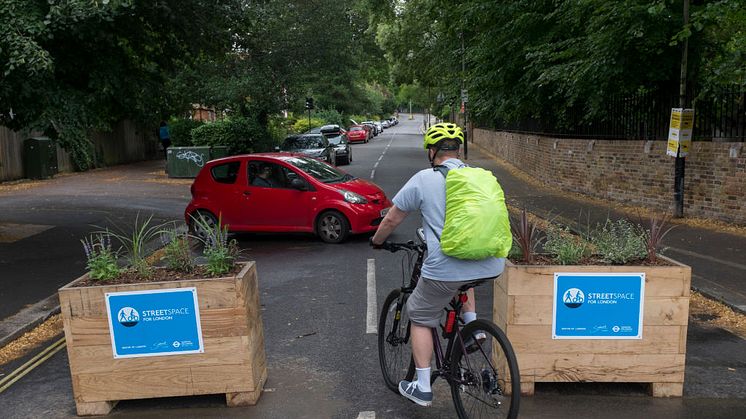
News -
Low traffic initiatives brought in as a result of the coronavirus - RAC reaction
Commenting on the introduction of low traffic initiatives brought in at short notice since the coronavirus lockdown, RAC head of roads policy Nicholas Lyes said:
“Nobody can deny that low traffic neighbourhoods are well-intentioned and there are doubtless some well-designed schemes which have widespread local support due to the valuable benefits they are delivering. Unfortunately, it also seems there some schemes that aren’t working well and are causing problems for residents, drivers and businesses.
“Rather than just ignoring these issues, authorities should be willing to listen to everyone affected and make changes to rectify them. Councils should also be actively looking at impact assessments and monitoring all schemes to ensure that unintended consequences – such as increased congestion and displaced traffic, worse journey times, increased difficulty for delivery drivers doing their jobs and access problems for emergency vehicles – are properly understood and avoided.
“The fact that the Government gave authorities just weeks to introduce schemes for the reallocation of road space is a reason why some schemes aren’t working. Councils were told they did not need to consult – yet if they didn’t take the cash on offer, they risked missing out on it altogether. As the lockdown has eased, councils now have an opportunity to consult properly and we believe the Government should require that they do so for new schemes. This is important so local authorities can understand the impact that schemes will have on all road users and residents, and can improve the design of any new scheme accordingly.
“We know that safety concerns remain a barrier to getting people out of their vehicles and on to two wheels so there’s also an argument for local authorities to look at spending some of this money on areas which cause the greatest safety hazards for cyclists, namely junctions and roundabouts. By tackling these, more drivers may be encouraged to use bicycles for some of their shorter journeys.
“Councils should also be considering how they can reduce through-traffic into towns and cities. We believe there’s an urgent case for creating more park and ride-type facilities, potentially taking advantage of not just buses but cycling, walking and scooting. Electric bicycles, and if fully legalised electric scooters should also be offered at such facilities to maximise options for those open to using such schemes.
“Managing road space is an extremely difficult job for urban planners, but in order to bring about lasting benefits for all, it’s essential any changes take proper account of the needs of residents, businesses and road users.”

